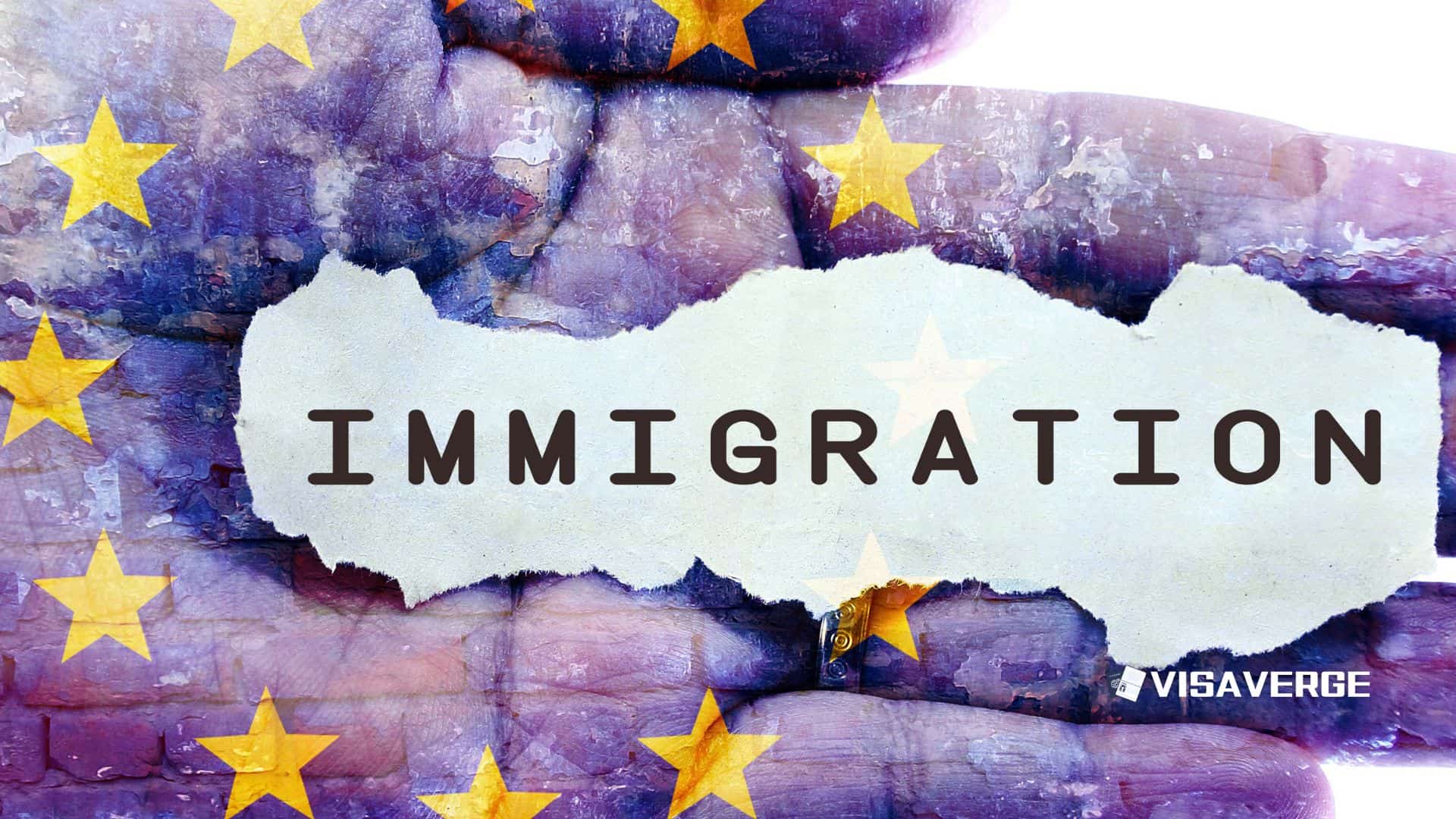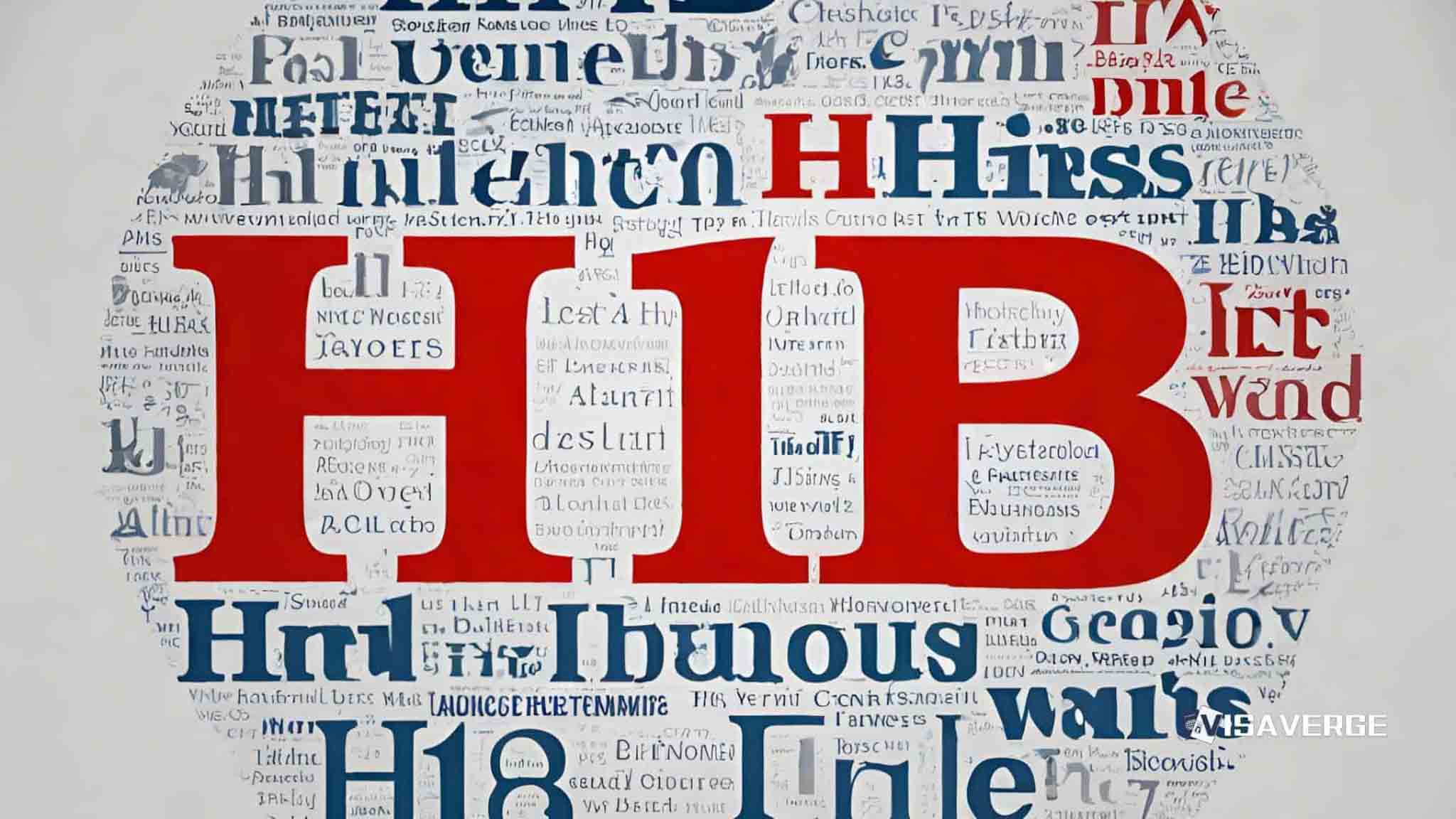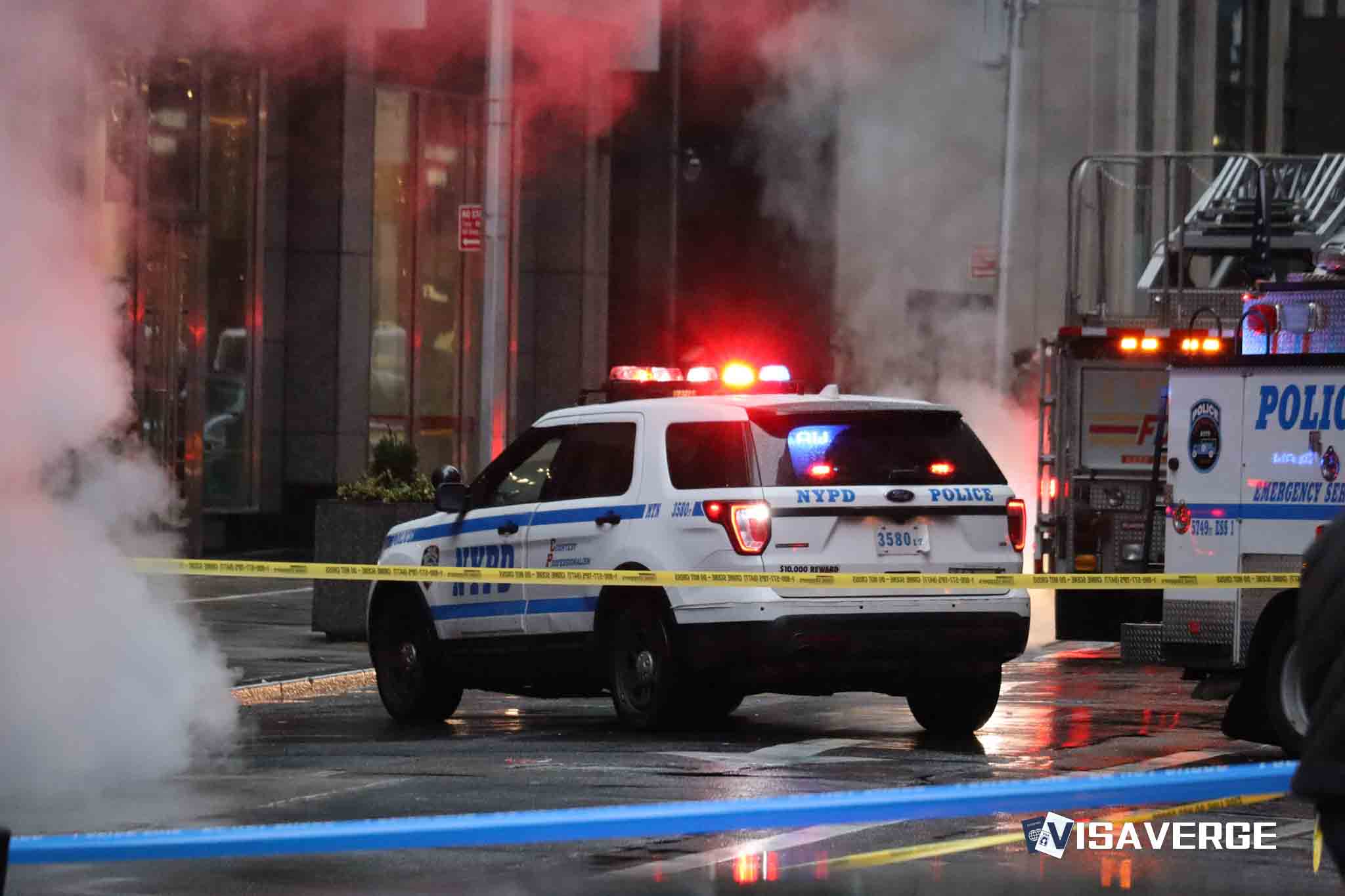Key Takeaways
• DHS increases civil immigration fines by about 1% effective January 2, 2025, retroactive to November 2, 2015.
• New penalties focus on Form I-9 violations including incomplete, missing, or unauthorized employment records.
• Employers must review I-9 procedures, train staff, and respond swiftly to ICE audits to avoid costly fines.
On January 2, 2025, the Department of Homeland Security (DHS) announced a new rule that increases fines for civil immigration violations across the United States 🇺🇸. This change, which comes as part of an annual update, affects employers, immigrant workers, and legal professionals nationwide. The new penalties, enforced by U.S. Immigration and Customs Enforcement (ICE), are about 1% higher than last year’s amounts and apply to violations assessed on or after January 2, 2025. These increases also apply retroactively to violations that happened after November 2, 2015.
This move is part of the government’s ongoing effort to keep penalties in line with inflation and to make sure that immigration laws are followed. The changes especially impact businesses that must comply with Form I-9 requirements, which are used to verify the work eligibility of employees. As the new rule takes effect, employers face higher financial risks for failing to follow the rules, while immigrant advocacy groups and legal experts are watching closely to see how these changes will affect workers and communities.

What Changed and Why Now?
The Department of Homeland Security, which oversees ICE, is required by the Federal Civil Penalties Inflation Adjustment Act of 2015 to review and adjust civil penalties every year. This law makes sure that fines do not lose their effect over time because of inflation. The 2025 update, published in the Federal Register, increases fines for a range of civil immigration violations, including those related to the Immigration Reform & Control Act (IRCA) and Form I-9 compliance.
Key points about the 2025 penalty increases:
– Effective Date: January 2, 2025, for violations assessed on or after this date.
– Retroactive Application: Applies to violations that happened after November 2, 2015.
– Increase Amount: About 1% higher than 2024 penalties.
– Scope: Covers a range of civil immigration violations, especially those involving Form I-9.
ICE’s Enforcement and Removal Operations (ERO) division is responsible for making sure these penalties are enforced. This means that businesses across the country must pay close attention to their hiring and record-keeping practices to avoid costly mistakes.
How the New Rule Affects Employers
Employers are at the center of these changes. Under federal law, every employer in the United States 🇺🇸 must use Form I-9 to check that each new employee is allowed to work in the country. If an employer fails to fill out, keep, or show these forms when asked, they can face civil immigration violations and be fined by ICE.
The main types of Form I-9 violations include:
– Failing to complete Form I-9 on time
– Not keeping Form I-9 records as required
– Knowingly hiring or continuing to employ someone not authorized to work
The fines for these violations now range from several hundred to several thousand dollars per violation, depending on the type and seriousness of the offense. With the 2025 update, each of these amounts has increased by about 1%. For example, if a business was fined $2,000 for a certain violation in 2024, the same violation in 2025 would result in a fine of about $2,020.
Employers must now:
– Review their Form I-9 procedures
– Train staff responsible for hiring
– Keep accurate records
– Respond quickly to any ICE audits or inspections
Failing to do so can lead to higher fines and more serious consequences, especially for repeat or severe violations.
Step-by-Step: How ICE Enforces Civil Immigration Violations
To understand how these fines are applied, it helps to look at the typical process ICE follows when enforcing civil immigration violations:
- Violation Occurs: An employer does not properly complete, keep, or provide Form I-9 records for one or more employees.
- ICE Inspection or Audit: ICE may visit the business or request records to check compliance.
- Violation Assessment: ICE reviews the records and determines if there are any violations.
- Penalty Calculation: ICE calculates the fine using the updated 2025 penalty amounts, reflecting the 1% increase.
- Notice of Violation: ICE sends a Notice of Intent to Fine to the employer, explaining the violations and proposed penalties.
- Response Period: The employer has a chance to respond, explain, or contest the fine.
- Final Penalty: ICE makes a final decision and may collect the fine or take further action if needed.
This process is designed to give employers a chance to correct mistakes, but it also makes clear that the government is serious about enforcing immigration laws.
Why Form I-9 Compliance Matters
Form I-9 is a key part of the hiring process in the United States 🇺🇸. Every employer must use this form to check if a new employee is allowed to work in the country. The form asks for documents that prove the person’s identity and work eligibility, such as a passport, green card, or work permit.
You can find the official Form I-9 and instructions on the U.S. Citizenship and Immigration Services (USCIS) website.
Employers must:
– Complete Form I-9 for every new hire, including citizens and non-citizens
– Check and record the documents provided by the employee
– Keep the forms for a certain period (three years after the date of hire or one year after employment ends, whichever is later)
– Show the forms to ICE or other officials if asked
If an employer does not follow these rules, they can face civil immigration violations and be fined by ICE. The new 2025 rule makes these fines even higher, increasing the pressure on businesses to get it right.
Perspectives from Stakeholders
Government and ICE
From the government’s point of view, increasing fines for civil immigration violations is necessary to make sure employers follow the law. ICE sees these penalties as a way to stop businesses from hiring people who are not allowed to work in the United States 🇺🇸. The Department of Homeland Security says that regular updates to fines help keep them effective over time.
Employers
Many employers are worried about the higher fines and the extra work needed to stay in compliance. Small businesses, in particular, may find it hard to keep up with changing rules and paperwork. Some business owners say that even small mistakes can lead to big fines, which can hurt their bottom line.
Immigrant Advocacy Groups
Groups that support immigrant workers often criticize aggressive enforcement of civil immigration violations. They argue that strict penalties can lead to discrimination or unfair treatment of workers. Some groups also worry that employers may avoid hiring people with foreign-sounding names or accents to avoid the risk of fines.
Legal Experts
Lawyers who specialize in immigration law say that the 1% increase in fines is not huge, but it shows that the government is serious about enforcement. They advise employers to:
– Do regular internal audits of their Form I-9 records
– Train human resources staff
– Fix any mistakes quickly
– Stay up to date with the latest rules and penalty amounts
Legal experts also point out that the inflation adjustment mechanism, required by law, means that fines will likely keep going up every year.
Historical Context: How We Got Here
The Federal Civil Penalties Inflation Adjustment Act of 2015 requires all federal agencies, including the Department of Homeland Security, to review and update civil penalties every year. This law was passed because lawmakers wanted to make sure that fines did not lose their effect as the cost of living went up.
Since 2016, ICE has increased penalties for civil immigration violations every year. These increases are usually small, but over time they add up. The 2025 update is just the latest step in this ongoing process.
ICE has always played a big role in enforcing immigration laws, especially when it comes to making sure that only people who are allowed to work in the United States 🇺🇸 are hired. The agency uses audits, inspections, and fines to make sure employers follow the rules.
What This Means for Immigrant Workers
While the new rule is aimed at employers, it also affects immigrant workers. When ICE increases fines for civil immigration violations, employers may become more careful about checking work documents. This can lead to:
– More careful review of employee paperwork
– Possible delays in hiring
– Increased pressure on workers to provide the right documents
Some immigrant advocacy groups worry that these changes could lead to unfair treatment or discrimination against workers who are legally allowed to work but may have documents that are harder to verify.
Practical Guidance for Employers
With the new fines in place, employers should take steps to protect themselves from civil immigration violations. Here are some practical tips:
- Review all Form I-9 records regularly to make sure they are complete and accurate.
- Train all staff involved in hiring so they know how to fill out and keep Form I-9.
- Fix any mistakes right away and keep records of any corrections.
- Stay informed about the latest rules and penalty amounts by checking official government websites.
- Respond quickly to any ICE audit or inspection and seek legal help if needed.
Employers can find detailed guidance on Form I-9 compliance on the USCIS website.
Looking Ahead: What’s Next?
The 2025 penalty increase is part of a larger trend. Each year, the Department of Homeland Security will continue to review and adjust fines for civil immigration violations. This means that employers can expect penalties to keep rising, even if only by small amounts.
There is also the possibility that future administrations could make bigger changes, such as increasing enforcement or expanding the types of violations that can be fined. For now, the main message is clear: employers must take Form I-9 compliance seriously to avoid costly penalties.
As reported by VisaVerge.com, these annual adjustments are a reminder that immigration enforcement remains a top priority for the government, and both employers and workers must stay alert to changing rules and requirements.
Where to Get More Information
For those who want to learn more or need help with compliance, here are some official resources:
- ICE Detention and Enforcement: ICE Detention Management
- Form I-9 and Employer Guidance: USCIS Form I-9
- Federal Register Notices: The Federal Register publishes all official updates on civil penalties and other rule changes.
- Legal and Advocacy Groups: Many organizations offer help to both employers and immigrant workers on compliance and rights.
Final Thoughts and Action Steps
The new rule from the Department of Homeland Security, raising fines for civil immigration violations by about 1% for 2025, is a clear signal that the government is keeping a close watch on employment practices. Employers must pay careful attention to Form I-9 compliance, train their staff, and keep accurate records to avoid costly mistakes. Immigrant workers should also be aware of their rights and make sure their documents are in order.
By staying informed and prepared, both employers and employees can reduce the risk of problems and help create a fair and legal workplace for everyone. For the latest updates and official forms, always check government websites and trusted sources.
Employers who take these steps now will be better prepared for future changes and less likely to face fines or other penalties from ICE. As the rules continue to change, staying alert and proactive is the best way to protect your business and your employees.
Learn Today
Department of Homeland Security (DHS) → U.S. federal agency responsible for immigration enforcement and homeland security.
Form I-9 → Employment eligibility verification form required by U.S. employers to confirm new hires’ legal work status.
Immigration Reform & Control Act (IRCA) → 1986 law that prohibits hiring unauthorized workers and requires employment verification.
U.S. Immigration and Customs Enforcement (ICE) → Federal agency enforcing immigration laws, responsible for inspections and imposing fines.
Federal Civil Penalties Inflation Adjustment Act → Law mandating annual inflation-based updates to federal civil penalties to maintain effectiveness.
This Article in a Nutshell
On January 2, 2025, DHS raised civil immigration fines by 1%, affecting employers nationwide. Form I-9 compliance is critical to avoid these penalties, which apply retroactively. ICE enforces fines to ensure lawful hiring, urging employers to maintain accurate records and stay updated on evolving regulations to protect their business.
— By VisaVerge.com













